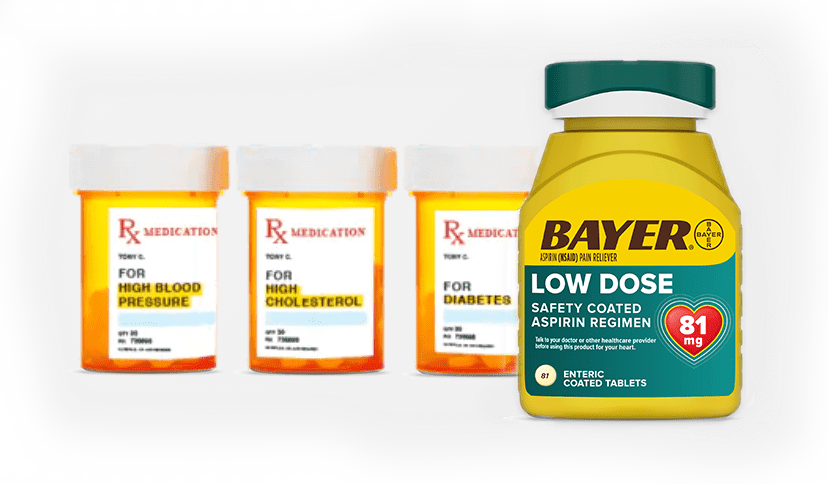WHAT COMES NEXT?
HERE’S WHAT CAREGIVERS SHOULD KNOW AFTER A LOVED ONE HAS A STROKE
The thought of caring for a stroke survivor can be daunting. It can also be highly rewarding when you’re armed with the knowledge it takes to face the challenge.
EDUCATE YOURSELF ABOUT RECOVERY AND ASK THE RIGHT QUESTIONS
Does your loved one need medication? If so, are there any side effects? Do they have any specific needs for home care? The more questions you ask the doctor, the more information you’ll have to make the recovery process comfortable for both of you.
DEVELOP A RECOVERY PLAN — AND STICK TO IT
Stroke survivors who don’t follow their recommended treatment put themselves at risk of having another stroke. It’s vital to make sure your loved one takes their medication, follows a healthy diet, gets the recommended amount of exercise, and sees their doctor regularly. Remember, everyone’s recovery is different. Focus on your loved one’s regimen and progress instead of making comparisons to other survivors.
LEARN ABOUT INSURANCE COVERAGE
Before your loved one begins rehabilitation, talk to the doctor and/or case manager to learn exactly what medical and rehabilitation services are available. Then, find out how much and how long insurance will cover for these services so you can manage costs and expectations properly.
MEASURE AND LOG YOUR LOVED ONE’S RECOVERY PROGRESS
Keeping track of how often your loved one goes to therapy helps indicate their rate of improvement. If they adhere to rehabilitation, over time, you should see progress. One of the best ways you can help is to take note of their communication skills, emotional lability, physical mobility, and any functional improvements made.
STOP POST-STROKE DEPRESSION
Survivors can experience depression during any phase of their recovery — and it can significantly hinder their progress. If you think your loved one is suffering from depression, talk to the doctor. Additionally, both of you can seek support from helpful resources like survivor and caregiver support groups.
DON’T BE AFRAID TO ASK FOR HELP
Caring for a stroke survivor is a big task, and you don’t have to do it alone. Taking care of them also means taking care of yourself. Ask a physical or occupational therapist for help, especially if your loved one experiences dizziness or trouble engaging in everyday activities. Loss of balance and falls are common, but if they’re serious or recurring, contact the doctor.
Caring for them means caring for you
Taking care of your loved one after a stroke is one of the most important and most challenging things you’ll ever do. As a caregiver, you’re a vital part of your loved one’s post-stroke journey. You’re tasked with staying informed, alert, organized, and positive along the road to recovery. It’s a big undertaking.
So it’s important to remember that you’re not alone. If you start to feel burnt out, there are many resources you can turn to for help, including the doctor, physical therapist, occupational therapist, case manager, or social worker. Additionally, caregiver support groups can also provide comfort and advice during difficult times.


MANAGING RISK:
WHY PRESCRIPTION MEDICATIONS MAY NOT BE ENOUGH
If you take prescription medications for high blood pressure, high cholesterol, and diabetes, they may not be enough to protect your heart. Talk to your doctor about whether these medications are enough for you and whether adding an aspirin regimen can help further reduce the risk of another heart attack or clot-related (ischemic) stroke.
Aspirin is not appropriate for everyone, so be sure to talk to your doctor before you begin an aspirin regimen.
Aspirin regimen products for recurrent stroke prevention
Aspirin is not appropriate for everyone, so be sure to talk to your doctor before you begin an aspirin regimen.








